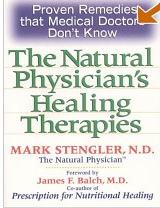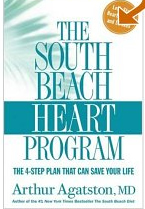Cardiovascular Health: Index of Diseases / Health Conditions
For general information only, consult a healthcare practitioner for any health problems. Disclaimer.
64 million Americans suffer from some form of Cardiovascular disease
39 million of them are age 65 or younger
Prehypertension
Prehypertension puts you at high risk for developing hypertension (high blood pressure), which in turn increases the risk of a heart attack or stroke. High blood pressure can also lead to heart failure or kidney disease.
Steps you can take:
- 1 Reduce salt: The National Institute of Health suggests consuming no more than 1,500 milligrams of sodium daily.
- 2 Exercise: Get at least 30 minutes of moderate-intensity physical activity on all or most days.
- 3 Supplements: Discuss with your doctor fish oil supplements, which contain omega-3 fatty acids (EPA and DHA) - i.e. Cod Liver Oil - also click here to find the best and worst fish to eat.


Expert Recommendations
Blood Pressure Management
Blood Pressure: The Silent Killer
High blood pressure, or hypertension, is often called "the silent killer," since many have it without experiencing obvious symptoms. But don't make the mistake of thinking the lack of symptoms means all's well inside your body -- high blood pressure damages healthy blood vessels and causes inflammation.
According to recent estimates (2009), nearly 1-in-3 American adults has high blood pressure.
According to Bauer, you can help control high blood pressure by making sure you get enough calcium, vitamin D, magnesium and potassium in your diet.
High Blood Pressure Can Mask Heart Attack Symptoms
High blood pressure, also called hypertension, is a tricky problem. People with this condition are less likely to experience angina (or chest pain) during exercise, which means they may miss an important warning sign of a heart attack.
Why HBP is the Silent Killer
At the Montreal Heart Institute in Canada, researchers found that people with greater increases in systolic blood pressure during stress tests less frequently experienced chest pain, possibly increasing the chance of suffering from a silent heart attack.
Take Care of Your Condition
Follow your doctor's instructions, don't skip medication doses, maintain proper nutrition, manage stress, and exercise regularly. Pay attention to unusual symptoms like excessive fatigue, shortness of breath, arm or back pain, nausea, dizziness, or palpitations.
Excellent Food / Supplement Choices
🍫 Cocoa - The Next "Wonder Drug"?
For the Kuna Indians, hypertension doesn't exist. After age 60, their average blood pressure is 110/70 because they drink 5 cups of cocoa daily. Harvard researchers found cocoa flavonols stimulate nitric oxide production, boosting blood flow and thinning blood like low-dose aspirin!
Heart-Healthy Foods
🌾 Whole Grains
4+ servings daily = 23% lower high blood pressure risk (Women's Health Study, 29,000 participants)
🥜 Nuts & Seeds
Unsalted pumpkin seeds, sunflower seeds, almonds, cashews. Rich in magnesium for cardiovascular benefits.
🍌 Potassium-Rich Foods
Bananas, figs, avocados, beans, kale, Swiss chard, papaya, pistachio nuts, cantaloupe, carrots
🌶️ Cayenne Pepper
Capsaicin helps vascular system expand, allowing blood to flow more easily and initiates salt excretion.
🫐 Hawthorn Berry
1200mg for 16 weeks showed effectiveness in reducing diastolic pressure in diabetic patients.
🐟 Other Essentials
Flax Seeds, Cucumber, Olive Oil (instead of other oils)

Cardiovascular Disease Prevention Foods
Fish - Click here to find the best and the worst fish to eat. Also refer to health benefits of Cod Liver Oil
Onions are a major source of both phenols and flavonoids, two types of phytonutrients that numerous studies have shown are protective against cardiovascular disease as well as cancer. Summer onions such as Walla Walla, Vidalia and Maui Sweet Onions are high in sugar content, are not as high in nutritional value.
Additional Heart-Healthy Foods:
Apples, Almonds, Bananas, Bartlett Pears, Bell Peppers, Blueberries (2,400 ORAC value per 100g), Collard Greens, Eggplant, Fennel Bulbs, Figs (toxic to birds), Garlic, Grapes, Green Beans, Kale, Kiwifruits, Oranges, Parsley, Potatoes, Prunes, Sea Vegetables/Seaweed, Spinach, Summer Squash, Swiss Chard, Tomatoes, Yams
Stroke
Learn about stroke prevention, symptoms, and treatment options.
Heart Attack
Harvard study: Vitamin D deficiency increases heart attack risk.
Men with vitamin D levels ≤15 ng/ml had higher heart attack risk than those with ≥30 ng/ml.
High Cholesterol
Natural cholesterol lowering strategies and treatments.
Heart Health
Comprehensive guide to maintaining optimal heart health.
Weight Control
Weight management strategies for cardiovascular health.
Liquid Chlorophyll
Excellent detoxifier and antiseptic for internal organs. Used by holistic vets to balance blood sugar in pets with diabetes or hypoglycemia. (1/2 tsp, three times daily)